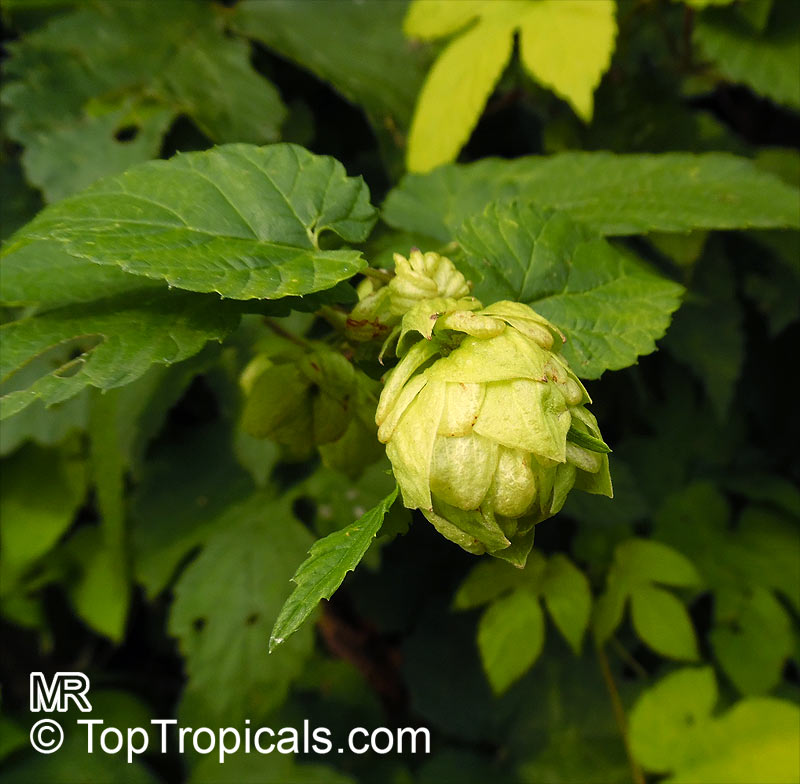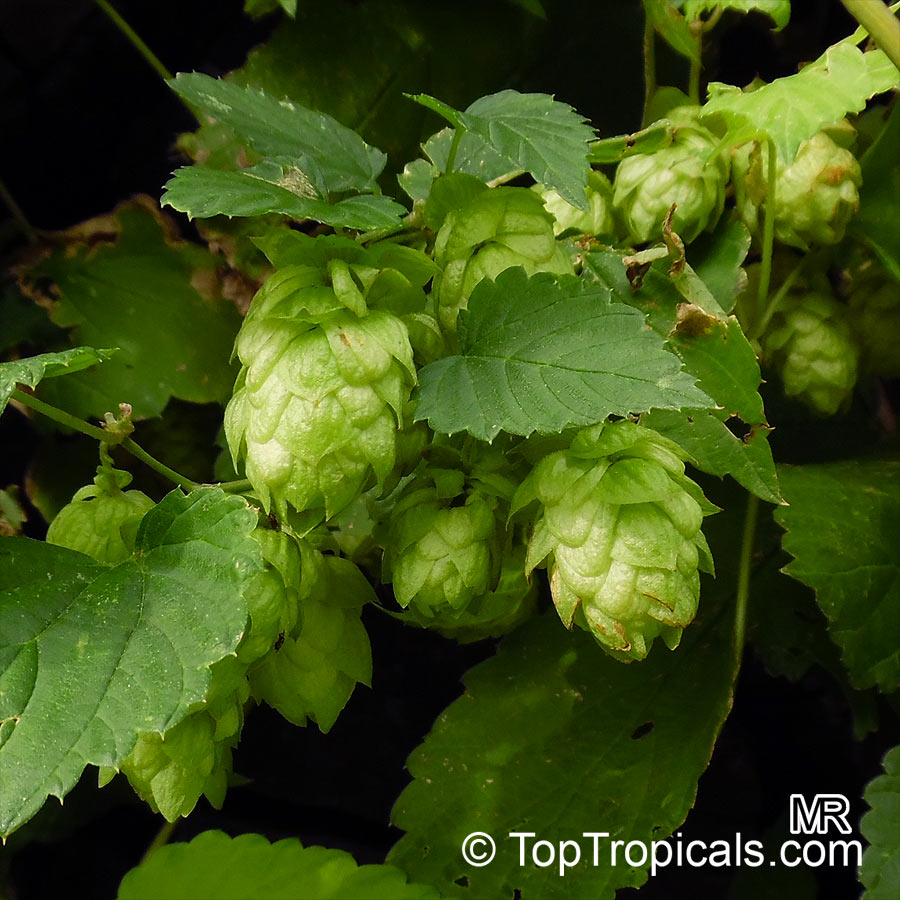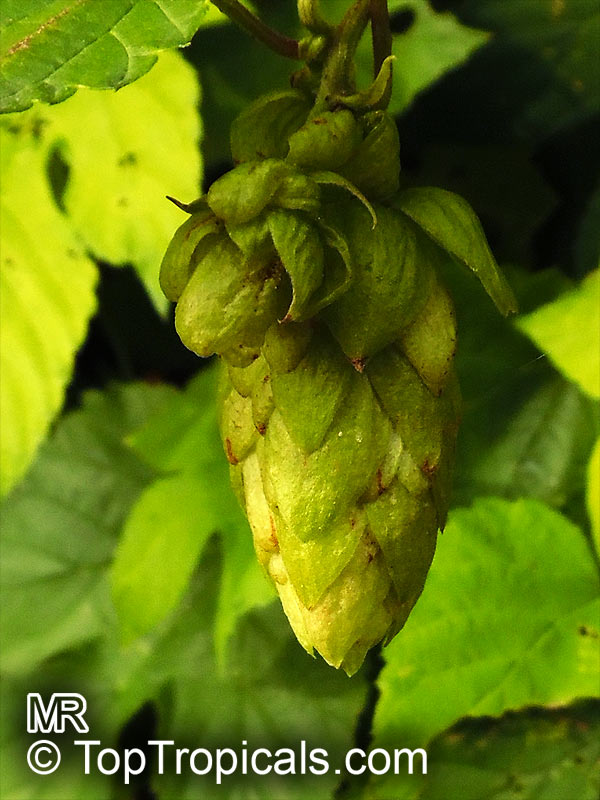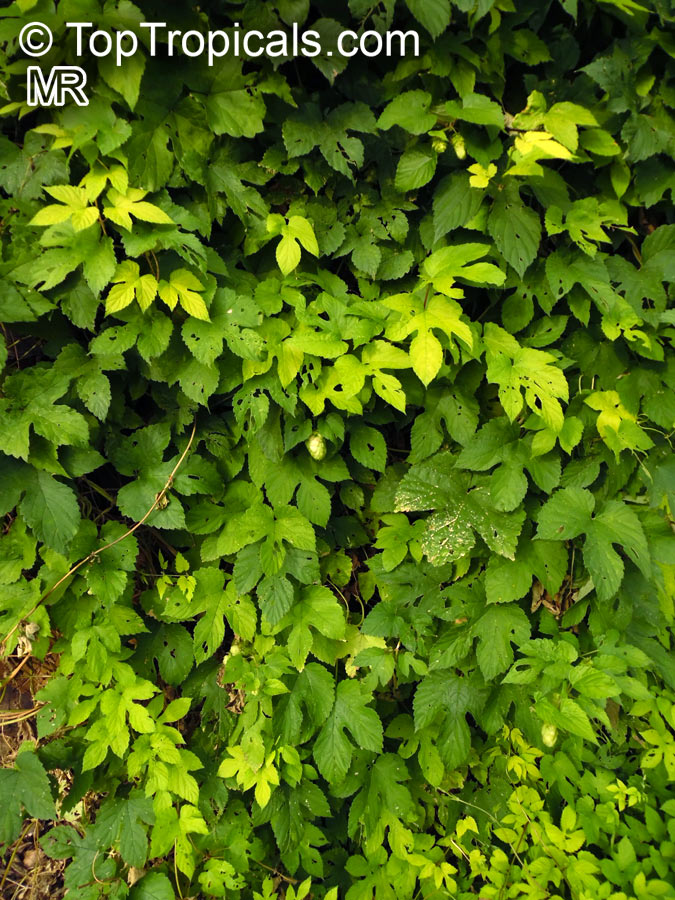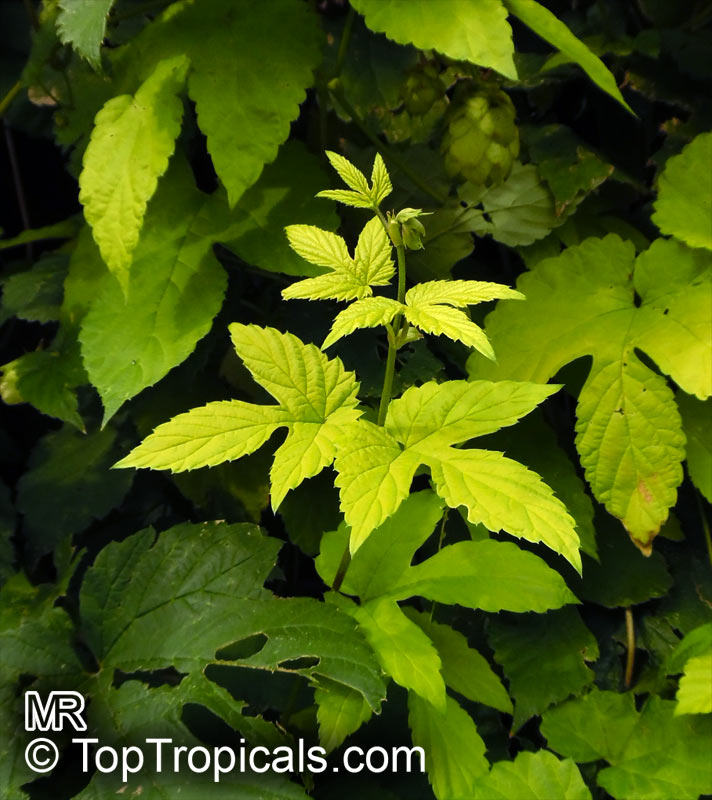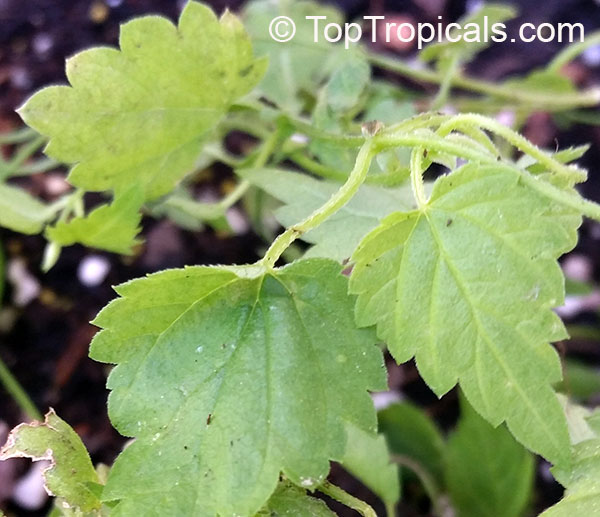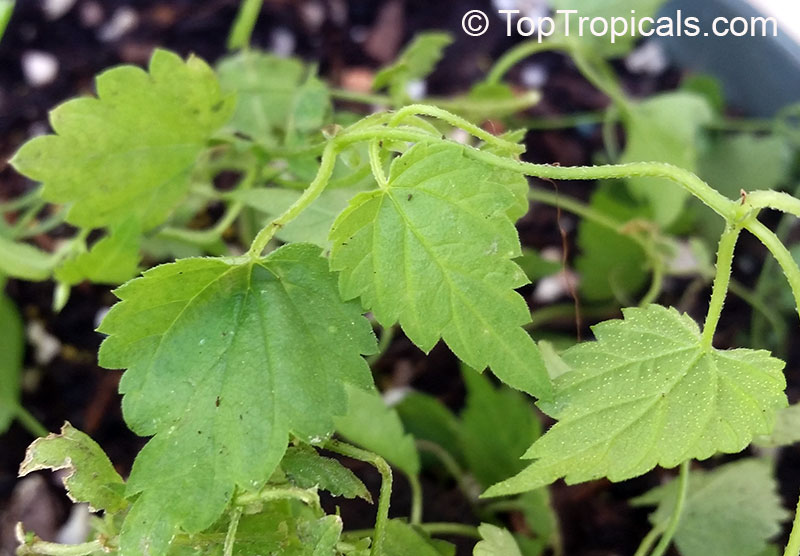Humulus lupulus (Hops)
Botanical name: Humulus lupulus
Common names: Hops, Common Hop
Family: Cannabaceae
Origin: Europe, Western Asia









Hops, also known as Humulus lupulus, are a flowering plant native to Europe and western Asia. They are a popular ingredient in beer and have a bitter taste due to their inflorescences with white to off-white flowers that have a pleasant fragrance. Hops can also be used as a spice or herb, and their cone-shaped fruits are edible. In addition to their use in brewing, hops have several health benefits. They can help with sleep issues and have antimicrobial properties. They can also aid in digestion, lower cholesterol, and improve cardiovascular health.
Hops are easy to grow, but they do require full sun and regular watering, being careful not to overwater. Hops grows well in USDA Zones 4-9. Mature plants can produce several hundred cone-shaped fruits. The fruits of the plant contain antioxidants, vitamins, and minerals that can boost the immune system and fight inflammation. This makes hops a popular ornamental plant as well.
Hops can be grown on a fence near an outdoor terrace, in a container with a tripod-shaped trellis, or over spring-flowering shrubs. They thrive in moist but well-drained, moderately fertile soil that is rich in humus. Hops die back in the winter but return each year.
